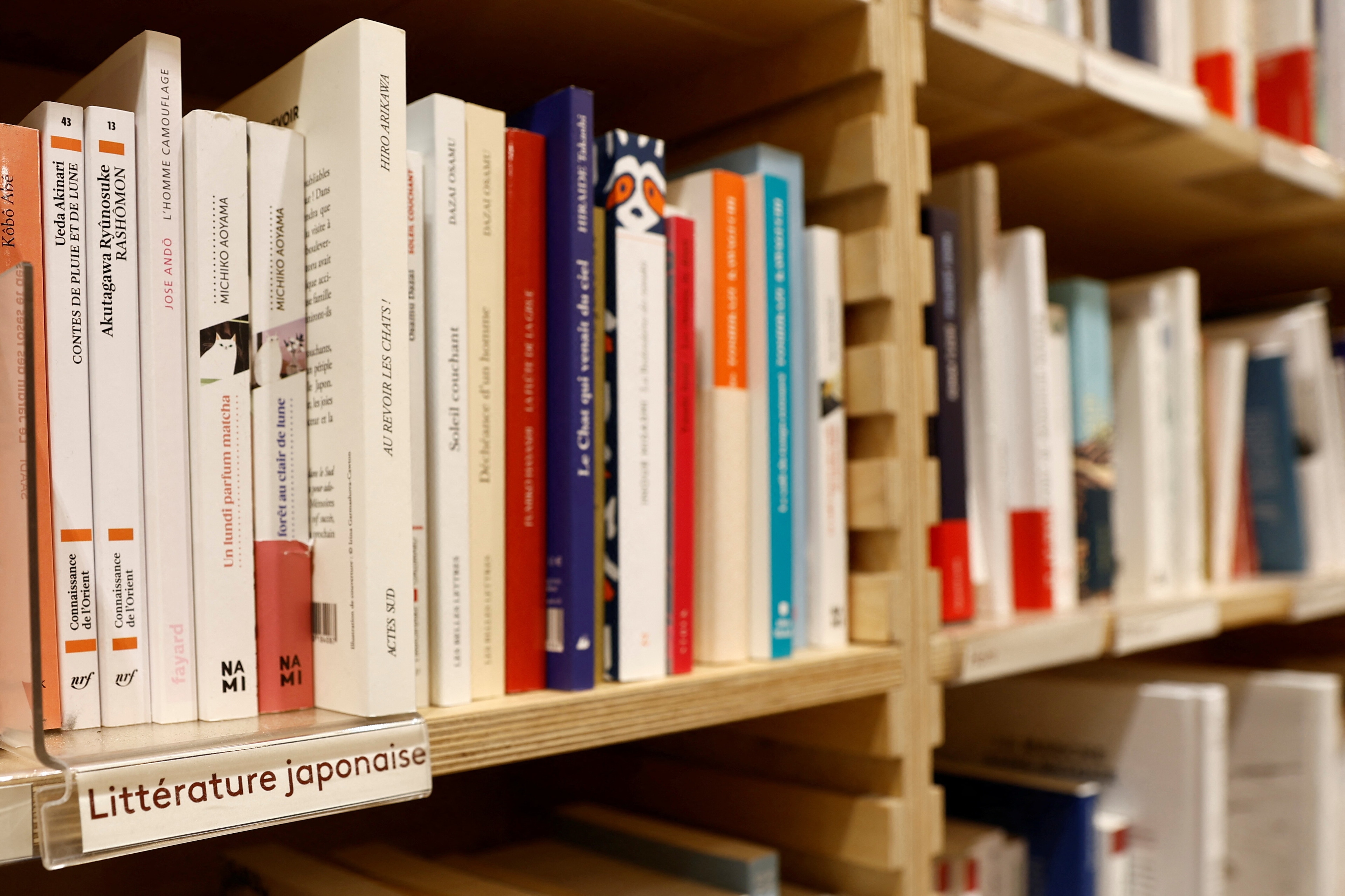What 17 successful people read before bed

The moments before sleep can provide a rare retreat from a jam-packed day for highly successful people.
For many CEOs, execs, and other high achievers, the day begins extremely early and is crammed with emails, meetings, and events. But the evenings can be a time to unwind with a good book. Or a magazine. Or newspaper. Some of them even curl up with their email.
From paperbacks to tweets, here’s what 17 super successful people read before calling it a night.
Alison Griswold contributed to a previous version of this article.
Tim Armstrong tries to always read a book to his two young daughters.
The AOL CEO once told the Guardian that he generally gets home around 8 p.m., and then sits down to read a book to his daughters. “They usually win and get two or three books,” he admitted. He tries to go to bed by 11 p.m. to get six hours of sleep.
Bill Gates has said he reads for an hour every night, even when he gets home late.
Back in the 90s, Microsoft’s cofounder told the Seattle Times that he considers reading at night to be “part of falling asleep.”
He loves good books (here’s his 2015 summer reading list) and his reading topics range from public health to the history of shipping containers. Gates considers himself a very fast reader, despite never taking a speed-reading course.
John Carney mulls great thinkers as he falls asleep.
“I’m somewhat obsessed with ancient philosophy, mostly Plato, Socrates, and Xenophon,” the Wall Street Journal writer told The Wire in 2013. He said he does most of this type of reading before going to bed. “Unless it’s Sunday night,” he added, “in which case I’m watching ‘The Walking Dead’ or ‘Homeland.'”
Arianna Huffington unwinds with only ‘real’ books before going to sleep.
Huffington is well known for taking sleep seriously, and she doesn’t mess around when it comes to her evening reading routine.
The Huffington Post founder recommends banning electronic devices like iPads, Kindles, and laptops from the bedroom and says she only reads the old-fashioned way, with print books.
Rob Delaney looks for humor on his Twitter feed.
Comedian and writer Delaney has more than a million followers on Twitter, and told The Wire in 2013 it still blows his mind “that people pay attention to what I say.”
His feeds are the last thing that he scrolls through before going to bed, though he admitted that he’s mostly looking for entertainment at that point. “I’m more interested in diversion before bed, so hopefully I’m reading fart jokes,” he said.
Ira Glass says he’s always doing research.
The “This American Life” host told Pamela Paul, author of 2014’s “By the Book,” that even his “leisure” reading has professional applications.
“Everything I’m reading right now is homework of one sort or another,” he said. “That’s pretty typical. I’m jumping around like a grad student, writing a paper on Mary Lethert Wingerd’s history, ‘North Country: The Making of Minnesota,’ for this big story we’re doing on the show about the Dakota Uprising of 1862.”
(Presumably, he’s onto a new paper now — you can listen to that episode here.)
David Heinemeier Hansson skims a variety of tech blogs.
The Danish programmer and creator of the programming language Ruby on Rails consumes the same tech-filled fare in the evenings as he does each morning.
He told Business Insider that his daily round consists of Reddit, Hacker News, Engadget, the Economist, Boing Boing, and Twitter.
Jane Friedman’s biggest evening reading commitment is her email.
Friedman, the cofounder and CEO of Open Road Integrated Media and former CEO of publishing giant HarperCollins, is fastidious about her email.
“No matter when I get home at night — and it’s usually late — I do at least an hour or two of email,” Friedman told Fortune in 2006. “I have this thing about reading all my emails.”
Alex Karpovsky reads magazine pieces on his iPad.
Writer, director, and actor Karpovsky — best known as the character Ray on HBO’s “Girls” — told The Wire last year that he saves magazine pieces for the end of his day and tries to avoid reading more of the news.
“I find it easier to get something that’s pseudo-narrative,” he said. “There was that great article a week or two ago about a guy who was lost at sea, which put me asleep one or two nights.”
Barack Obama watches ‘The Daily Show’ and reads up on reports.
If he’s home late at night, the President of the United States says he’ll try to catch bits of “The Daily Show.” “I think Jon Stewart’s brilliant,” Obama told Rolling Stone in 2012.
Other than that, he said he spends a lot of time reading reports, briefing books, studies, and intelligence assessments.
Ann Friedman mixes short articles with longform stories and fiction.
The freelance journalist and New York Magazine columnist once told The Wire that she uses the evenings to read articles she hasn’t gotten to during the day.
That’s usually five or six shorter pieces and one or two longform articles. She also will sometimes read a book for work, and tries to break all of it up with fiction when possible.
Shepard Smith makes sure ‘nothing blew up’ before going to sleep.
Before calling it a night, Fox News host Smith says he does “another lap” through his regular news sites. Those include The New York Times, New York Post, The Daily Beast, and sometimes BuzzFeed.
“I make sure nothing blew up that I need to stay up for,” he told AdWeek in 2013. “I sleep with my Samsung Galaxy in the bed.”
Gary Whitehill reads from 9 to 10:30 p.m., with two cups of peppermint tea.
Seriel entrepreneur Whitehill told Business Insider that he spends his nights reading 40 pages from whatever his current book is and scrolling through articles on politics, business, and culture.
He also scans the business and tech sections of the New York Times and the national and sports verticals of USA Today.
Cornel West stays up reading until 2:30 a.m.
The activist, philosopher, and professor takes his bedtime reading very seriously.
“I have to read all night; I have to be real fresh for class” he told the New York Times in 2010, when he was a professor at Priceton (he’s now at Union Theological Seminary).
“I like to read two or three hours every night. Right now I’m reading Robert Brandom, one of the great pragmatic American philosophers,” he said at the time. “I read until 2, 2:30 a.m. I don’t really need that much sleep.”
Vera Wang pores over material that staffers send her.
“My bedroom is my sanctuary,” the American fashion designer told Fortune in 2006. “It’s like a refuge, and it’s where I do a fair amount of designing — at least conceptually if not literally.”
Part of that work means using her evenings (“the only time where seven people aren’t coming to me at once,” she said) to read over whatever her staff sends.
Joel Gascoigne avoids reading anything related to work.
The founder and CEO of Buffer is committed to disengaging before sleep — and he advises others to do the same.
“Once in bed, do not read books which are related to your work in any way,” he suggested in a 2011 blog post. “For me, this means reading fiction.”
Bernard Telsey pours over scripts.
Renowned New York City casting director Telsey works right up until bedtime, he told the New York Times in 2014, and that means doing a very specific kind of dramatic reading.
“I’m reading scripts or casting notices or making more lists,” he said. “I stay up until 1 a.m. doing email. I do just fine with five hours’ sleep.”
This article is published in collaboration with Business Insider. Publication does not imply endorsement of views by the World Economic Forum.
To keep up with the Agenda subscribe to our weekly newsletter.
Author: Rachel Sugar is a careers reporter for Business Insider.
Image: A woman lies in the grass while reading a book. REUTERS/Carlo Allegri.
Don't miss any update on this topic
Create a free account and access your personalized content collection with our latest publications and analyses.
License and Republishing
World Economic Forum articles may be republished in accordance with the Creative Commons Attribution-NonCommercial-NoDerivatives 4.0 International Public License, and in accordance with our Terms of Use.
The views expressed in this article are those of the author alone and not the World Economic Forum.
Stay up to date:
leadership
Forum Stories newsletter
Bringing you weekly curated insights and analysis on the global issues that matter.
More on Arts and CultureSee all
Elena Raevskikh and Giovanna Di Mauro
October 22, 2025






